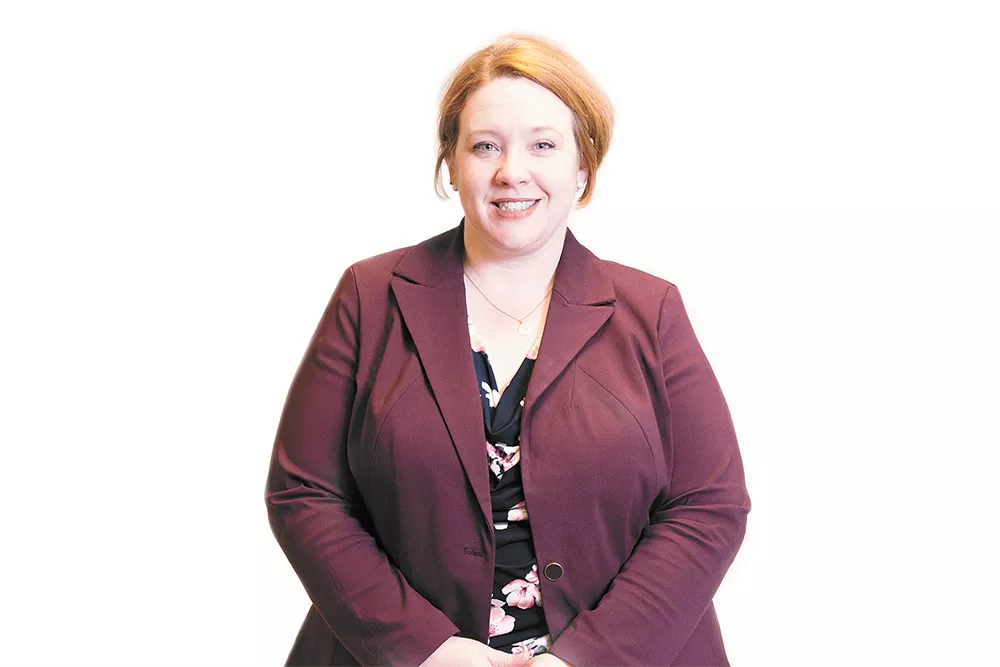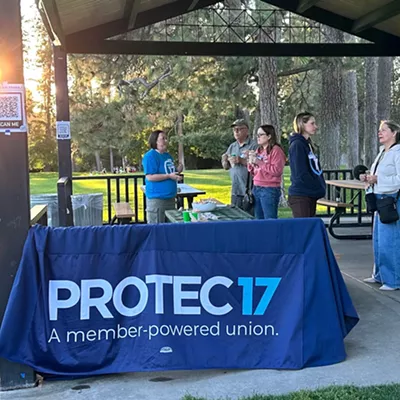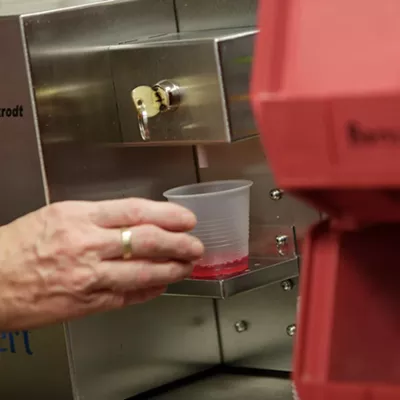Having just moved to Spokane from Indiana about two months ago, Amelia Clark, the Spokane Regional Health District's new administrative officer, is still getting her bearings. But she's excited to help chart the agency's long-term, big-picture vision for its public health work while she completes her doctorate in public health at Indiana University. And to her, metrics for public health take a variety of forms, including the prevalence of grocery stores and family violence rates. The Inlander sat down with Clark to get a sense of how she will approach tackling health issues in Spokane.
This interview has been lightly edited for space and clarity.
INLANDER: What does the Health District's administrator do?
CLARK: As the administrator I'm going to be looking at things like funding. I want to make sure that we always have the right [grant and state-level] funding coming in to work with. I'm going to be looking at what our community needs assessment will look like and whether our strategic plan is aligning with that. We recently brought in community partners to help us do system mapping, looking at different issues. A lot of times when you ask someone "is my community healthy?" they don't really talk about going to the doctor. They talk about access to grocery stores, access to a safe place to walk — things that are outside of traditional "health."
What brought you to Spokane? What were you working on in Indiana?
I've lived in Indiana since I was 6 years old so this is a big move across the country. My background has all been in health care for underserved populations and working in public health. Prior to coming to Spokane I was working as a consultant and before that I had spent six years as the regional vice president of Meridian Health Services which is a federally qualified health center. When I read the job description, a lot of what is embodied in the position is a lot of stuff that I'm interested in health equity, like disease prevention and environmental health.
What are the big public health issues in Spokane?
Our strategic plan is focusing on three areas: cardiovascular health, mental and behavioral health and family violence and trauma. A lot of cardiovascular issues stem from nicotine and nicotine consumption. There are things you can do to lessen the impact that it can have on you later in life, so it's starting healthy habits like walking.
A lot of the domestic violence and intimate partner violence conversation right now is asking, "What are the upstream causes?" People who abuse or get into domestic abuse situations typically witness those [behaviors] as children.
And there's different levels of homelessness: someone couch surfing versus someone who is chronically homeless.What's a substance abuse issue and what is someone who is severely and persistently mentally ill? At the Health District, we definitely understand that addiction substance-use disorders are a disease. It's a chronic disease.
What's surprised you about Spokane so far?
One thing that I'm really impressed with is the walkability and kids being outside. Where I lived in Indiana, there are not a lot of sidewalks. We were driving around [in Spokane] and we're just like, "Look at all these kids outside and playing!" I was just thinking, "Man, if I were in Indiana everybody would have driven." It's a very car-centric place. I've been really impressed that the city puts aside money for parks here. ♦




















